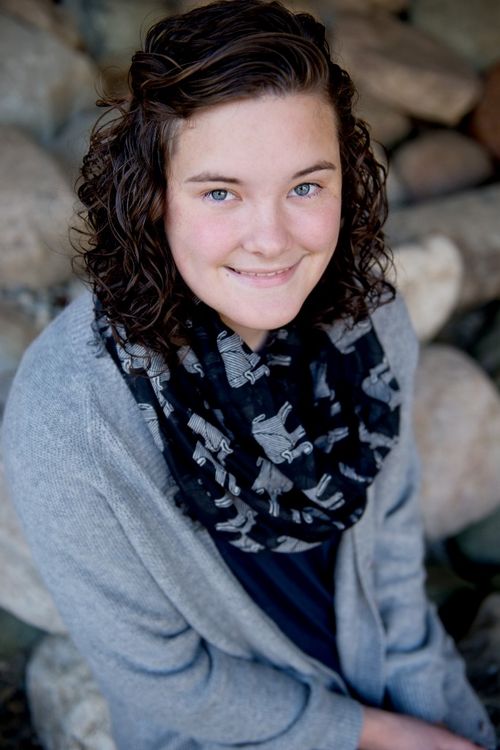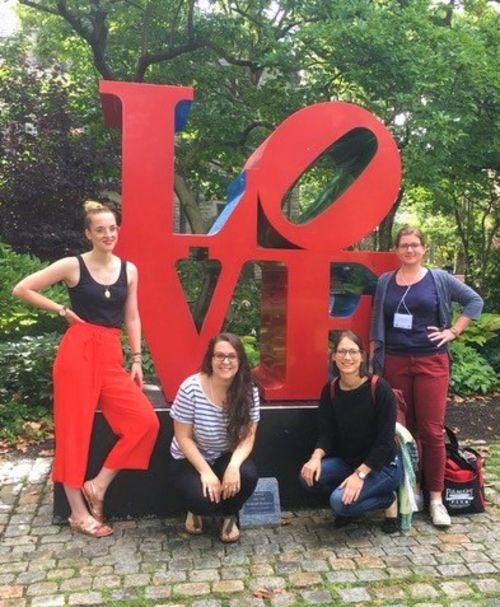Moving to a new place always involves certain challenges, and while some feel at home right away, others must first surmount their initial apprehensions before they feel comfortable in a new setting. We asked two teaching assistants to share their orientation experiences with us: USTA Leah Bruce, who is residing in Steyr, Upper Austria, and FLTA Vanessa Erat, who is currently living in Norman, Oklahoma. Though their paths meandered along different routes, both have happily settled into their new adventure. Here are their stories.
Adapting to a New Country: USTA & FLTA Orientations
3 Oktober 2018Moving to a new place always involves certain challenges, and while some feel at home right away, others must first surmount their initial apprehensions before they feel comfortable in a new setting. We asked two teaching assistants to share their orientation experiences with us: USTA Leah Bruce, who is residing in Steyr, Upper Austria, and FLTA Vanessa Erat, who is currently living in Norman, Oklahoma. Though their paths meandered along different routes, both have happily settled into their new adventure. Here are their stories.
Leah Bruce: a USTA’s experience arriving in Austria
For weeks, I couldn’t sleep. Everyone just said, “Don’t worry, it’s only jet lag.” It wasn’t. I had been abroad before. I had always been able to sleep. This was different. This was fear—loneliness.
When I arrived in Austria, I was overwhelmed by anxiety. I didn’t know how I would get everything done by myself. How could I open a bank account when my German was weak at best? How would I register at the Meldeamt? Pick up my Aufenthaltstitel? Live? I couldn’t stop repeating these questions. I couldn’t calm down. I felt isolated. I couldn’t ask for help. How could I, when I hardly speak the language?
I arrived afraid. I stayed that way for weeks, unable to sleep. I was so caught up in my head I forgot to notice the reality of what was going on around me.
On my first night, my roommate made dinner—he knew I didn’t want to grocery shop after traveling.
In my first week, my regional advisor made the trip from Linz just to help me open a bank account.
At orientation, the TAs tried to help me work through my fears and anxieties. They told me it would be okay. But because I had only been focusing on the negative, I didn’t believe them.
My first week at work was still stressful, and when a teacher invited me bowling, I said no. After all, I’m a terrible bowler. He seemed disappointed, but later that day I was asked again and again to go bowling until, finally, I agreed.
It was my best day.
We connected despite a language barrier. We ate Austrian food. We had fun. We found commonalities, like a love of Gilmore Girls. For the first time in weeks, I felt human. I didn’t feel scared. I even came in second place!
It’s hard to feel comfortable in a new place when you’ve left everything you know and love behind, but people everywhere are the same. We all put our pants on one leg at a time. There are always people, no matter where they live or what language they speak, that want to help—to help us love the places they love. So, never, ever, say no to bowling. I know I never will again.
To see photos from the USTA orientation, please check out our Facebook album.

Vanessa Erat: an FLTA’s journey to the US
“Asking questions is a way of demonstrating intellectual capital.” With these words, Christina Frei, the Executive Director of Language Instruction and Academic Director of the Penn Language Center, set us off on a three-day tour de force through the American classroom. Before traveling to our host institutions—the University of Oklahoma in my case—we jointly traveled the heights and depths of what to expect in our classrooms: the wondrous peaks of joyous meaning-making through communicative language teaching, the adventurous valleys and stormy seas faced by the average US student, ranging from a competitive grading scheme to a maze of bureaucracy.
We flew the highest when we stepped into the shoes of our future students and our future selves alike: A “shock language lesson” engulfed us in the poetic, sonorous beauty that is Quechua, and on the last day we delighted ourselves and each other with the closing paragraph of a grandiose prologue “Ready, Set, Teach!” that saw us teach our own languages to each other: from Thai, German, and Portuguese to Chinese, Turkish, and many more.
The most challenging aspect in the classroom, we were also told, is listening. Not speaking: speaking up, speaking loudly, speaking to explain. It’s the challenge to be fair, to be inclusive, to share our airtime – to give, to breathe, to listen. So we listened. And we shared. And together we laughed, we sang, we danced.
There were friendships born in those three days that will leave a footprint in our lives—not just for the upcoming months that we will spend in our classrooms, languages centers, cultural institutions, and event venues throughout the United States, but for the rest of our lives. Once a Fulbrighter, always a Fulbrighter – and as J. William Fulbright himself once said, “Our future is not in the stars but in our own minds and hearts.”
But that’s only the beginning.
Senator Fulbright also said that “[e]ducational exchange can turn nations into people.” Exchange, of course, builds on language, on communication. It is those visions that make endeavors like the Fulbright Language Teaching Assistant program so vital in today’s societal landscape.
To teach, to be a voice, to listen, to learn: I stand in the great, wide flats of the Midwest, and I have more questions than answers on my tongue—and I know, thanks to three days with my band of brothers and sisters, that it is not just alright; it is right.
Let the adventure begin.
 FLTAs at orientation in Philadelphia, Pennsylvania: Kathrin Wenny (University of Illinois at Urbana-Champaign), Vanessa Erat (University of Oklahoma), Julia Polczer (Ohio State University), Andrea Steiner (University of North Carolina at Greensboro).
FLTAs at orientation in Philadelphia, Pennsylvania: Kathrin Wenny (University of Illinois at Urbana-Champaign), Vanessa Erat (University of Oklahoma), Julia Polczer (Ohio State University), Andrea Steiner (University of North Carolina at Greensboro).